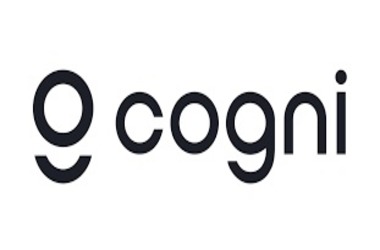
An exclusive rooftop party was hosted by New York-based Fintech firm Cogni at NFT.NYC. The firm provides simple access to a wide range of Web2 and Web3 services, such as fiat currency exchanges, cryptocurrency exchanges, non-fungible token exchanges, online casinos, and the metaverse.
FinanceFeeds first became acquainted with Cogni via the FF Podcast, on which Simon Grunfeld, Head of Web3 at Cogni, appeared as a guest. At Cogni’s rooftop event, experts discussed the bright future of digital banking and cryptocurrency. New features, such as Cogni passport, for its non-custodial wallet were also demonstrated at the event.
The loss of FTX might have been the last straw that convinced Bitcoin owners to switch to non-custodial wallets. Cogni had an advantage because to its non-custodial wallet that could store digital assets such as NFTs on several blockchains and its FDIC-insured checking account that was available on iOS and Android.
The exclusive NFT NYC network convened industry leaders and game-changers including Fred Kim, Archie Ravishankar, Nabyl Charania, and Carlotta to discuss the state of the business one year after the bubble burst and how to win back consumers’ confidence.
Cogni’s non-custodial software ‘Passport’ is a significant innovation in the NFT market. It’s like a hybrid of Web2 KYC’s finesse and Web3’s portability. The new ‘Passport’ user verification technique launched by Cogni may be useful for the expanding NFT market. This solution simplifies user interactions by requiring KYC to be completed just once by the user throughout their time with Cogni. Instead of developing their own services, web3 platforms will be exposed to a non-custodial wallet that has been authorized by web2-kyc and can be confirmed with others. When the Know Your Customer (KYC) process is complete, a verified, non-custodial wallet and a bank account are delivered, as explained by Simon Grunfeld of Cogni.
This new update satisfies the need for businesses to locate and profile their ideal customers inside the complex Web3 ecosystem without compromising compliance. Cogni’s ‘Passport’ assists in resolving trust concerns in blockchain transactions, which is especially important given that the value lost to crypto crime in 2022 is projected to hit $20 billion.
Simon Grunfeld claims that joining Cogni is as simple as creating a bank account. The ‘Passport’ works to verify the owner of a wallet by employing a token that cannot be removed from the wallet itself for the purpose of verification. It’s also known by another name—”soulbound token”—and is used in a similar way.
The soulbound token ensures that only wallets that have been approved by Cogni may be used on Web3 services. The Cogni KYC standard provides businesses with access to encrypted, on-chain user data for the purpose of doing further verification checks. In the event of a security breach, the encrypted data is uploaded to the blockchain rather than a centralized database. One may deposit up to $150,000 into Cogni’s checking account app. Simon Grunfeld has made it clear that no other cryptocurrency service can guarantee the security of consumer funds in the case of a business failure like Cogni. I hope it never does!
For the avoidance of doubt, your wallet money and digital tokens are not FDIC-insured like other cryptocurrencies since they are not kept in a bank. With the NFT-compatible banking application’s 100% non-custodial web3 wallet, users retain full custody of their private keys and digital assets at all times. Cogni plans to capitalize on the possible crypto and NFT trend in the wake of the fall of some of the digital asset industry’s major brands in 2022.